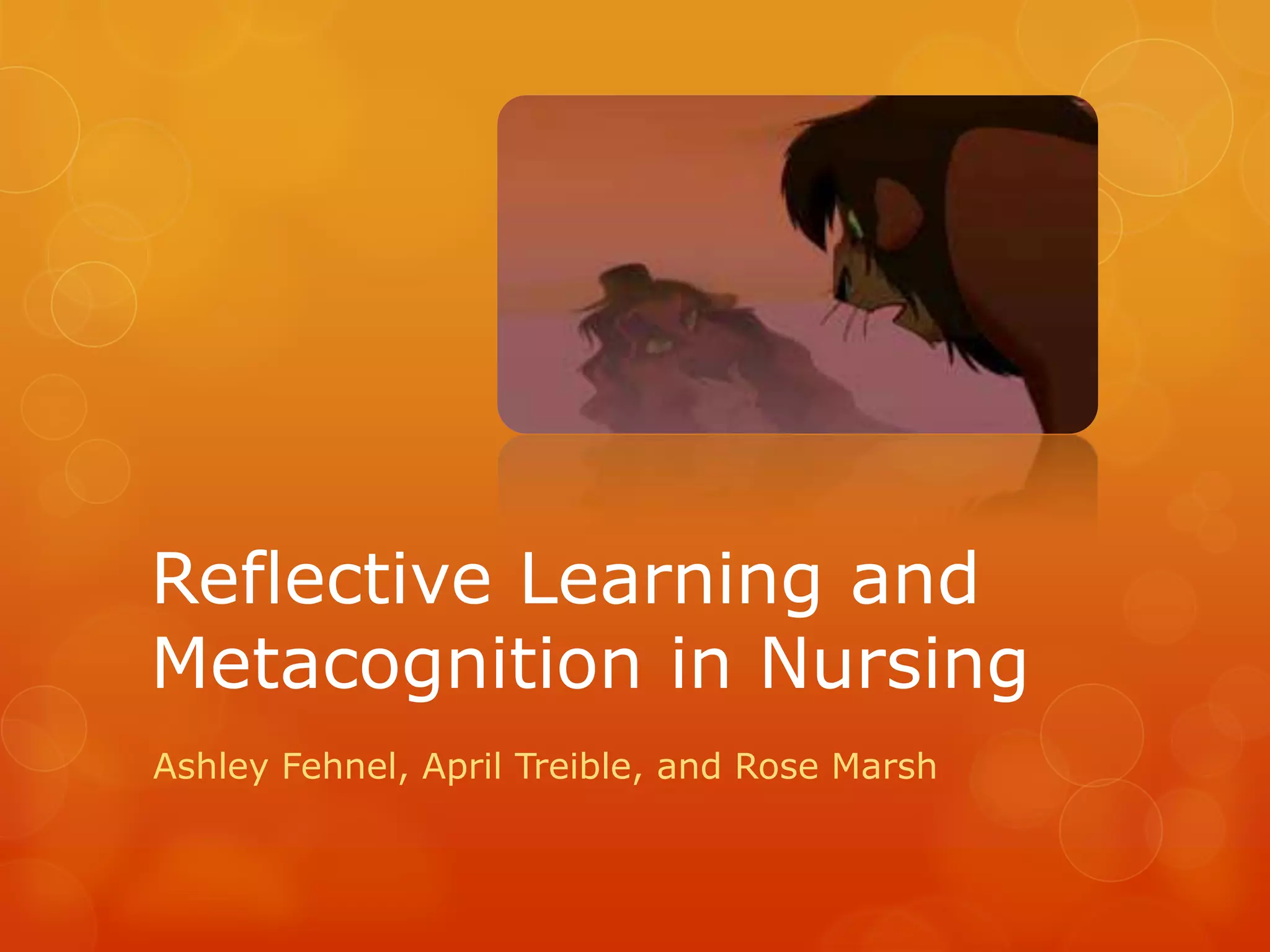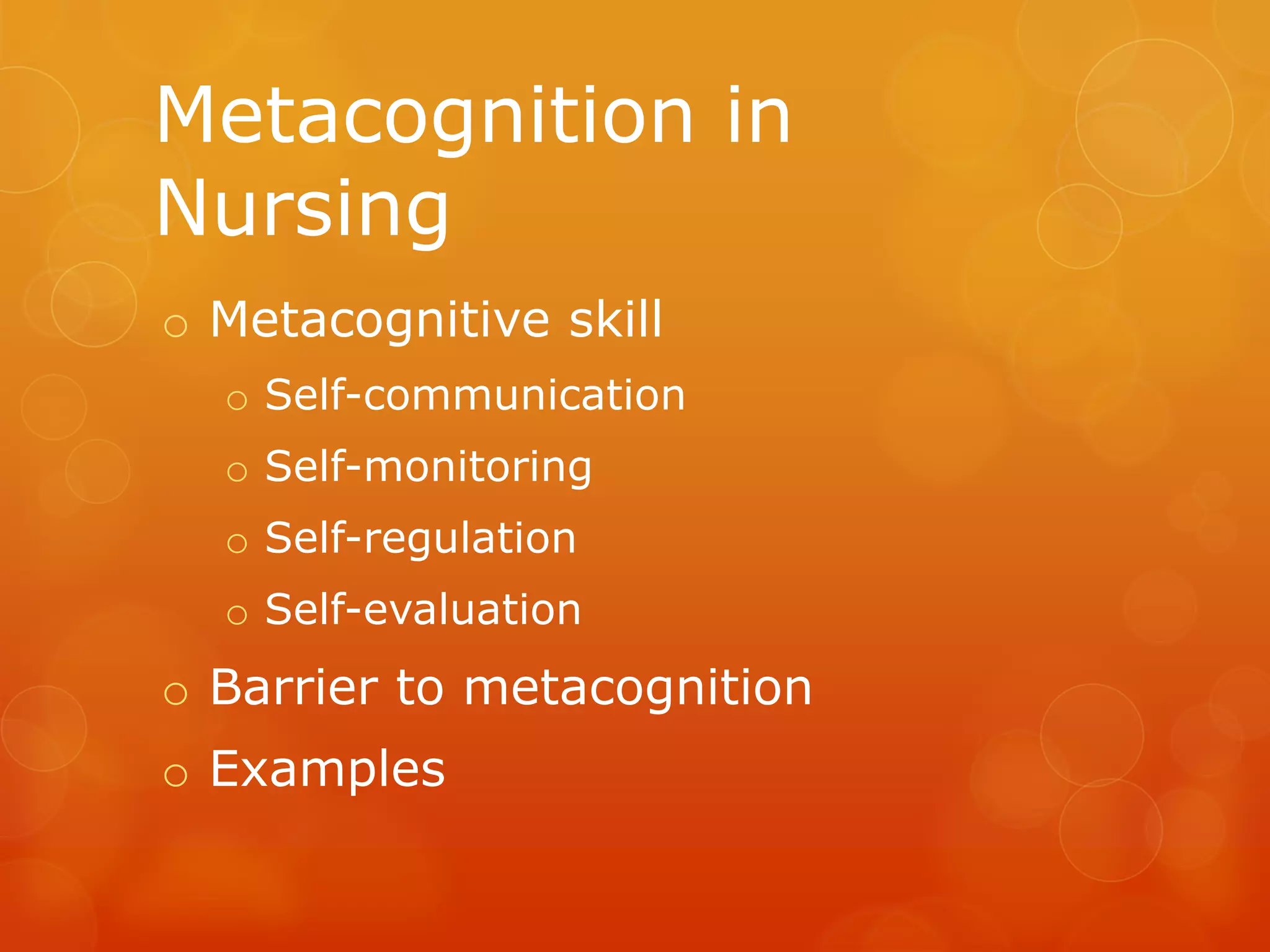This document discusses reflective learning and metacognition in nursing. It defines critical thinking as the cognitive work of the mind and composite of attitudes that guides nurses in assessing, assimilating, and deciding information to make quick decisions. Novice nurses have fewer patient cues and difficulty with complex diagnoses compared to expert nurses who use informal thinking and cognitive shortcuts. Critical thinking skills develop with cognitive ability, experience, maturity, and skill level. Reflective learning and metacognition are important for nurses to support clinical judgments through internally examining issues triggered by experiences. Stages of reflection include awareness, critical analysis, and new perspectives to develop from a reflector to a critical reflector.


















